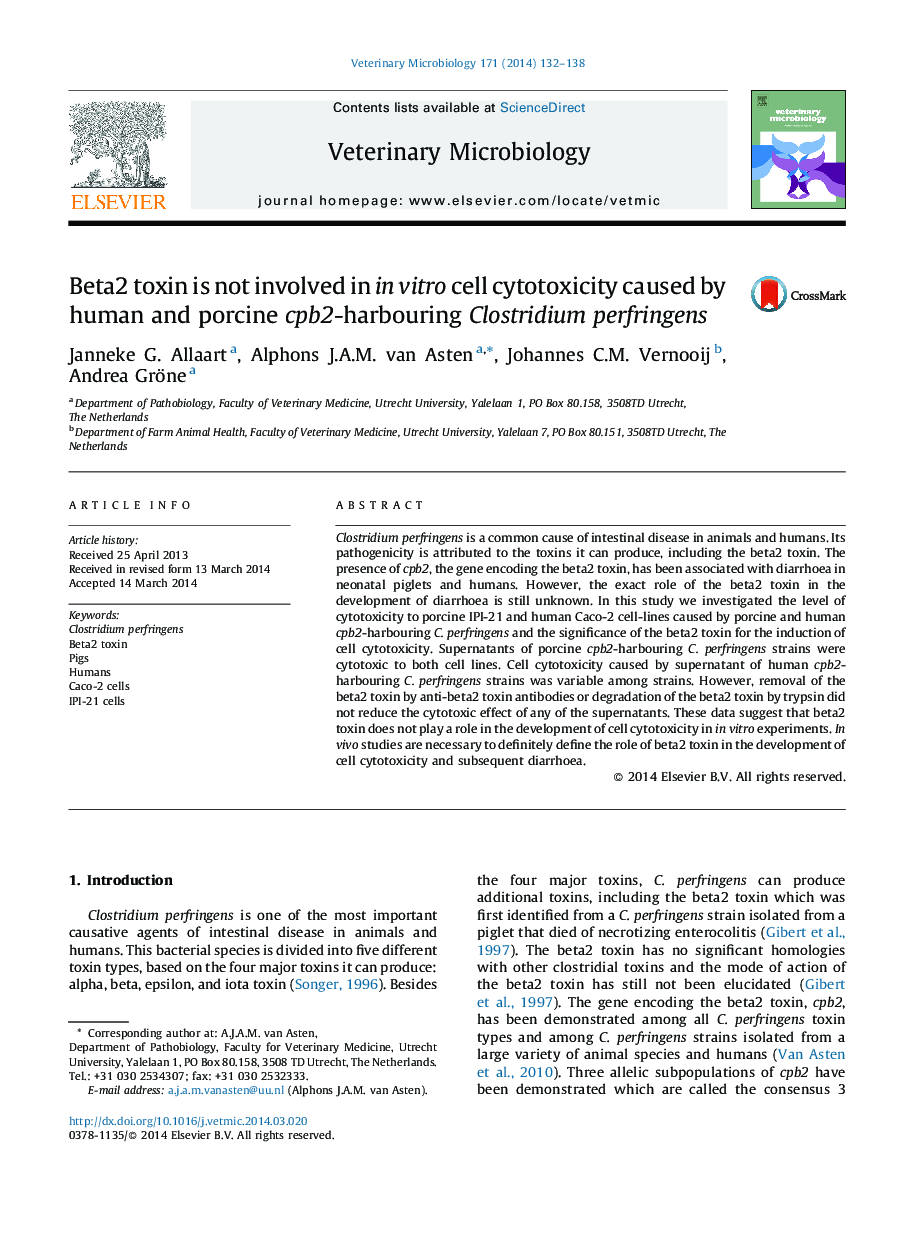| Article ID | Journal | Published Year | Pages | File Type |
|---|---|---|---|---|
| 2466592 | Veterinary Microbiology | 2014 | 7 Pages |
Clostridium perfringens is a common cause of intestinal disease in animals and humans. Its pathogenicity is attributed to the toxins it can produce, including the beta2 toxin. The presence of cpb2, the gene encoding the beta2 toxin, has been associated with diarrhoea in neonatal piglets and humans. However, the exact role of the beta2 toxin in the development of diarrhoea is still unknown. In this study we investigated the level of cytotoxicity to porcine IPI-21 and human Caco-2 cell-lines caused by porcine and human cpb2-harbouring C. perfringens and the significance of the beta2 toxin for the induction of cell cytotoxicity. Supernatants of porcine cpb2-harbouring C. perfringens strains were cytotoxic to both cell lines. Cell cytotoxicity caused by supernatant of human cpb2-harbouring C. perfringens strains was variable among strains. However, removal of the beta2 toxin by anti-beta2 toxin antibodies or degradation of the beta2 toxin by trypsin did not reduce the cytotoxic effect of any of the supernatants. These data suggest that beta2 toxin does not play a role in the development of cell cytotoxicity in in vitro experiments. In vivo studies are necessary to definitely define the role of beta2 toxin in the development of cell cytotoxicity and subsequent diarrhoea.
